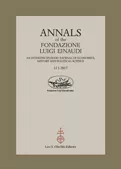Medical doctor, liberal revolutionary, parliamentarian, and promoter of new agricultural crops. Born in Goa, in a Catholic Brahmin family, Bernardo Peres da Silva (1775-1844) was the first and only Indian to be nominated as governor of the Portuguese Empire in Asia and a remarkable figure in the global ‘Age of Revolutions’. His defence of constitutional liberalism and calls for equality between Indians and Europeans have led C.A. Bayly to compare him with the Bengali reformer Rammohan Roy. Nonetheless, although his career spanned three continents, Peres remains mostly unknown outside the narrow confines of the historiography of Goa. Taking his life and works as a case study, this paper explores the place of South Asia and the agency of colonised peoples in the Age of Revolutions. By focusing on his writings on agricultural improvement and on his appeals for the introduction of new crops in Goa, it argues that agriculture played a key role in Peres da Silva’s political and economic thinking and in his attempts to fashion a patriotic and romantic Goan liberalism.



